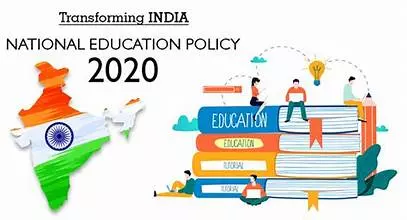DC Edit | States, Centre must work in harmony on education
Education was originally a subject placed in the ‘State List’ of the Constitution and the Union government’s role was limited to co-ordination and determination of standards in universities. It was through an amendment to the Constitution during the Emergency that the subject was listed in the ‘Concurrent List’, giving the Union government a greater say in education

The tiff between the Union government and the Tamil Nadu government over the former’s refusal to release Rs 2,150 crore due to the state as part of the in implementation of the Samagra Shiksha Abhiyan, a Central government initiative, as the state government was unwilling to implement the three-language policy is unfortunate and needs immediate resolution.
Education was originally a subject placed in the ‘State List’ of the Constitution and the Union government’s role was limited to co-ordination and determination of standards in universities. It was through an amendment to the Constitution during the Emergency that the subject was listed in the ‘Concurrent List’, giving the Union government a greater say in education.
The Union government had in the sixties introduced the three- language policy as a means to strengthen national integration. However, there was strong objection and opposition to it as some states, mostly in the south, saw it as a ploy to impose Hindi on them. Protests had turned violent in Tamil Nadu and thereafter the state has been continuing with the two-language formula, English being the second language.
The New Education Policy-2020 of the Union government advocates the implementation of the three language policy. As per the policy document, “the three languages learned by children will be the choices of states, regions, and of course the students themselves, so long as at least two of the three languages are native to India.”
In a way it gives the states the freedom to choose the third language and Tamil Nadu can very well avoid the threat of an imposition of a language by the Union government. Educationists have not objected to children learning three languages; in fact they have encouraged it as long the primary education is in the mother tongue.
However, ideally, it must be left to the state governments to decide how many languages a student should learn. It is the practice all over the world that regional governments get to decide the contour of education, especially in the primary and secondary level. The Union government’s policies should liit themselves to be larger framework under which the communities can organise themselves.
It is patently wrong on the part of Union education minister Dharmedra Pradhan to keep back the Central funds as hostage to the state government accepting and implementing the Union government’s policy. Worse, no law or the Constitution empowers him to make a statement that Tamil Nadu has to come to terms of the Indian Constitution and that the three-language policy is the rule of law. It is a dangerous suggestion that the Tamil Nadu government, by rejecting a policy of the Union government, is defying the Constitution. The education minister must teach himself at least Article 1 of the Constitution which insists that India is a union of the states.
This is not the first time the NDA government is trying to impose its policies on states. The draft UGC regulations on appointments of vice-chancellors of state universities effectively keep the state governments out of the selection process of the vice-chancellors. Several state governments have already raised their objections to the draft regulations.
The Union government should disabuse itself of the thought that it is the master of the state governments; it is not. It must leave the authoritarian tone while communicating with the states; it must follow the traditions of democracy and dialogue, and not of threat and blackmail. The number of languages it uses for the purpose hardly matters.

